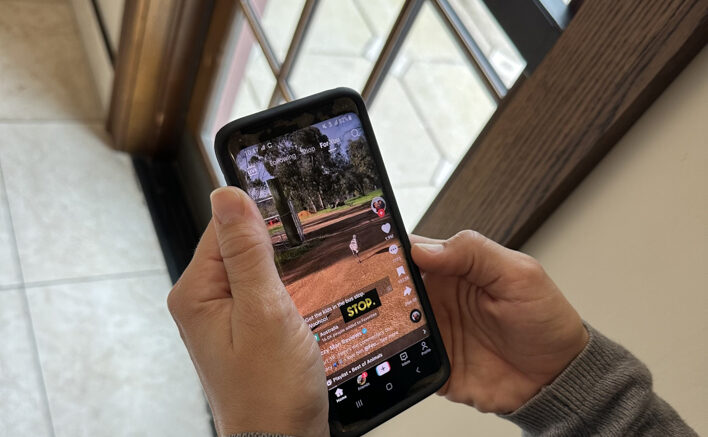By Kendall Younkman
More students spend a good amount of time using social media on the phone. There is a high percent of college students using social media in school and it affects their education.
College students are immersed in social media in school when homework or exams are coming up. It affects student’s mental health and grades.
Most college students drop out of college because of the issue.
The students in this generation focus on social media and it impacts their education in school.
The growth in social media has grown since the COVID-19 pandemic.
Alexis Guzman, 21, a Flagler student, majoring in Deaf education who transferred to Flagler College last year, showed her interest in Deaf Education and becoming a teacher for the Deaf.
Most of the time, she works hard in school and has high loads of homework but struggles to stay focused due to her phone.
“I get distracted very easily and would be on my phone to watch TikTok and Instagram for 30 minutes, and did not get to finish my homework,” Guzman said.
Guzman admitted it was her fault for using her phone during study time.
“Now I know for next time, I will make sure my phone is not with me when I study in other rooms such as the library and improve my time management,” Guzman said.
Brian Thompson, the director of publications at Flagler College and teacher for Sports and Entertainment reporting, noticed most students would be on their phones, playing games or on social media.
“My high school daughter is a 17-year-old senior and she has no social media,” he said. “She doesn’t want to be like other students who would spend a good amount of time on social media.”
Thompson believes there are more students who find using the phone an easier way to communicate with others instead of doing it face-to-face.
“The technology made it so easier for students to communicate with people instead of face to face,” Thompson said.
Eleanor Hinkle, the new Flagler RN, just started working at Flagler two months ago, but she also worked as a nurse for 30 years. She shared her experience of what she has seen from the students on campus and has had more than a few Flagler students with mental health struggles.
“Holly, the nurse practitioner, does the initial assessment on the students with mental health and prescribes the medications for depression if needed, but they do still need to see the counselor,” Hinkle said.
Hinkle believes phone usage increased after COVID-19 when students only communicated through electronics.
“Nobody was able to interact. People needed to be out with each other, and they were not able to, and we see a lot more depression, anxiety, social skills and it hurts them,” Hinkle said.



Be the first to comment on "How social media impacts student’s life in school"